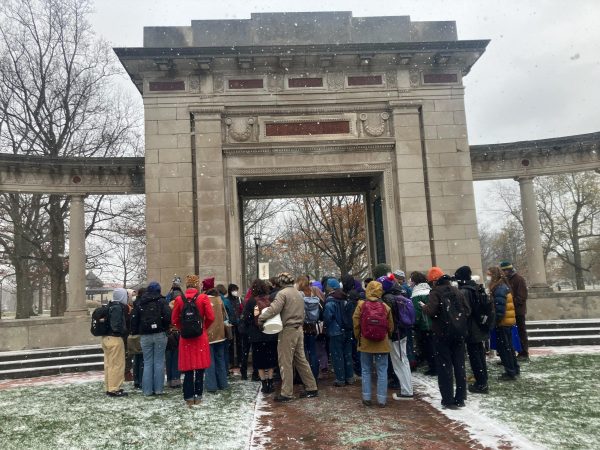From Malaysia to Ohio, a Foodie’s guide to Homesickness
My friends at Oberlin have commented on my relationship with food and cooking, and a common adjective I receive is ‘intense’. It’s a fair descriptor. It’s a testament to my family’s influence on me. When I’m in Malaysia, we always joke about how at every meal we all deliberate what we are going to do for the next meal. We live to eat — there’s no alternative. I realized that in college, when I’m away from my family, I still carry that hedonistic impulse to do whatever it takes to satisfy my craving for whatever dish I want, for every meal, every day, until I die. But when the family you love and the dishes you grew up with are no longer within reach, the work you do to satisfy your love for food becomes something more than efforts for the sake of pleasure. It’s the bridge that connects me to my parents and brother back in New Jersey and all the way to my family in Malaysia.
The last time I was in Malaysia was in January 2020. My family on my mother’s side lives there and I grew up with the luxury of spending almost every summer there, since I was about six months old. The past year during the pandemic I lived with my parents in our home in New Jersey. With the uncertainty of everyday life and the pressures of my newfound adulthood, I found myself finding comfort and stability in my family more than ever. Some of my happiest memories of this difficult time were cooking for my parents and our weekly meals at home. Even though I should be a seasoned pro at getting used to college, this year I was the most homesick I had ever been at Oberlin. With two consecutive semesters to go and an uncertain post-college future, I’ve been adjusting to life without my parents around and grappling with the fact that it might be a couple of years before I get to go back to Malaysia and see my extended family again. I found myself more than ever seeking out the life I used to have through cooking.
I was talking to my mom about what food meant to her when she was in college and I realized how similar our bonds were to it. At 18, she packed up her things in Penang, Malaysia, and came to the U.S. for the first time to attend Ohio Wesleyan University. New to adulthood and new to this country, food was her connection to home. She told me about how my Ama would devise substitutes for ingredients not available in Delaware, Ohio. No coconut milk? Yogurt or milk with lemon juice did the trick. Ama would fill her suitcase with frozen sambal and other foods to smuggle back to school with her. My mom told me that as a mother, packing food was a way she could care for me. “Familiar tastes emotionally reminded me of how a family feels: who cooked what, how my mother used to cook it,” she said.
Life in a small town in Ohio during the ’80s was not easy for my mother. She explained to me, “If you were a foreigner it was even more stark ’cause there were so many white people around. I was more conscious of trying to fit in, but I knew I would never. A big part of my consciousness was missing my own culture but wanting to embrace my own surroundings.” While she enjoyed the new culture and trying the local cuisine, the reality of never fitting in was apparent. People would yell racial slurs at her on the street. She was embarrassed to cook in her own dorm out of fear the aroma of her food would be offensive to its American residents. My mother found a small community, bonded by a longing for familiar flavors. She and the other international students would make an event out of going to the one Chinese restaurant in town. She would frequently go to her friend’s international dorm to cook together. On cultural nights at the dorm, she would make Malaysian food and choreograph Malaysian dances with her friends. As she settled into a foreign reality, food kept her grounded and in touch with her community.
While my mother and I had completely different circumstances surrounding our college experiences, we shared the same bond to food. To eat and cook familiar dishes in college was an embodiment of pure familial and cultural love. Food was the antidote to homesickness, loneliness, and isolation. Like my mother, when I go to college my bags are stuffed full of my favorite types of instant ramen, dried mushrooms, nori and noodles, spices, sambal, tea, Milo, Nescafé, and Old Town White Coffee mix. When I make fried rice I think of the last time I was in Malaysia; after complaining about how bad my mom’s fried rice was, my Kong Kong took me into the kitchen and taught me how to really make fried rice. When I use my wok at Oberlin, I am reminded of my mom and my weekly trips to the Asian grocery store during quarantine. We made those trips extra special by picking up bubble tea, pork dumplings, and if we were lucky, fresh Jian Dui for the drive home. In my kitchen here, with the food I cook and the meals I share, my family does not seem so far away. As the scent of garlic and onions sizzling in cumin, turmeric, coriander, and cayenne waft in the air, my house here in Oberlin begins to feel like a home — and for now, that’s enough.


